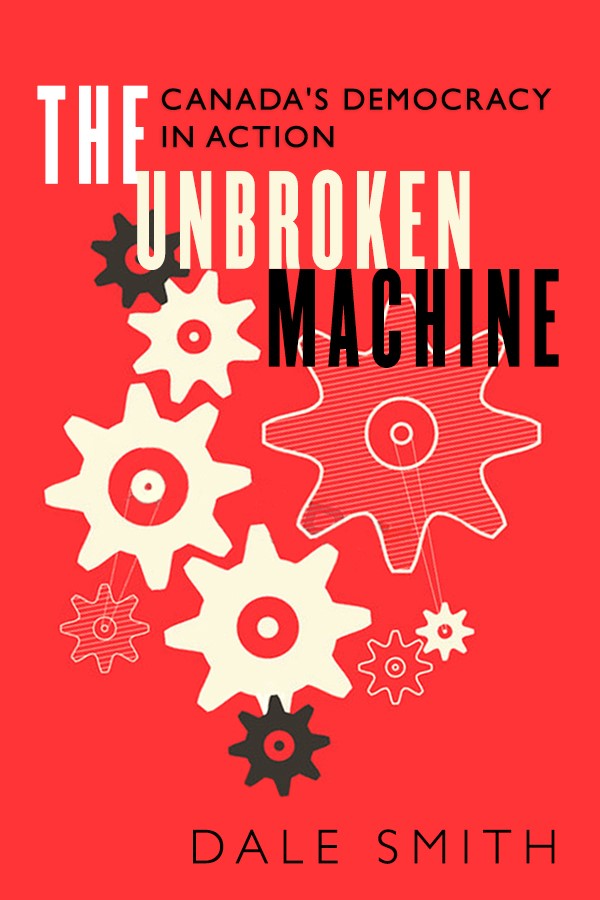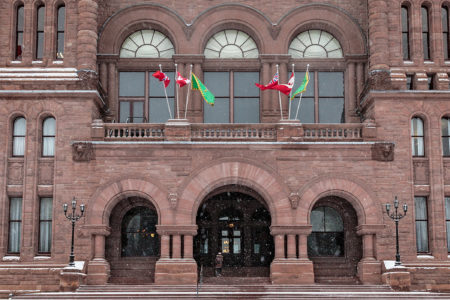
We are seeing scattered protests around the country from groups who are sore about Prime Minister Justin Trudeau’s decision to abandon his promise to end the first-past-the-post voting system, and the House of Commons e-petition calling on the government to reinstate the electoral reform promise has closed with 130,592 signatures. From my perspective, Trudeau was wise to smother this Rosemary’s Baby in the cradle when he did. After all, our system isn’t actually broken, so why cast about for a solution when the problem is largely imaginary?
Part of the reason is that Canadians on the whole don’t properly understand how the system is meant to work, so when it doesn’t behave in the ways that we think it should, we declare it to be broken and look for fixes. Many of those solutions are the politician’s syllogism: something must be done, this is something, therefore we must do this. In recent memory, we saw this with the furor around Conservative MP Michael Chong’s Reform Act, a law intended to rebalance power between backbenchers and the party leaders (it was a terrible piece of legislation but it was something his party could put in the window to claim it was taking action). We’ve seen the Liberal Party rewrite its constitution in order to “streamline” its processes (resulting in even more centralization of power in the leader’s office). And then there was the start of the electoral reform process. The Liberals eventually backed down from trying to run the special committee studying electoral reform like any other, and instead allowed the process to be manipulated by the NDP so that we ended up with a committee with supposedly “proportional” representation of all parties (which was not in the least proportional). All of these were examples of people insisting that they had come up with something that was going to make democracy better when it was nothing of the sort.
I wrote my book The Unbroken Machine in part out of frustration with all these people constantly calling for reform without actually understanding what it is they are demanding to change. We don’t get much civics education in this country in high school, and even in provinces like Ontario where there is a civics course, it’s often presented with incorrect information. When you get to a post-secondary political science class, you’re more focused on political philosophy than you are on the mechanics of politics on the ground. So, we’re left with very few Canadians who understand some of the most fundamental workings of our system, such as nomination races, and not many join riding associations in order to engage with the system at the grassroots level. Most of us think that all that’s required of us is to cast a ballot every three or four years, if we’re not too busy, and everything will sort itself out from there.
The lack of civics education is also a factor in the cynicism that fuels the kind of populism that has led to the Brexit vote and the election of Donald Trump in the United States. When you don’t know how the system works, it’s easy to start to resent it and think it’s working against you or that you have no means of input. When you don’t understand why the way we count votes works the way it does, it’s easy to read misleading numbers reporting the popular vote, or to look at how many votes it takes to elect a member of a given party, and think that the system is “unfair” or “unrepresentative” of your beliefs. Even when you’re inside the system, as MPs are, not really knowing how the system works leads to complaints that they have become the victims of party machinations and that they are somehow unwilling participants in the things that happen in the House of Commons.
But when I present what is largely an exploration of the status quo, I am often asked if I think that everything is just fine the way it is. The answer is obviously no: we do have problems, but they are not of such existential magnitude that we require a fundamental overhaul of our democratic and electoral systems. What we need is a better appreciation of the system that we have, and to roll back some of the changes that have been made over the years that were supposed to make things “more democratic” but wound up creating bigger problems (such as the way we now conduct party leadership contests, where it is party members rather than MPs who decide who will lead the caucus in the Commons). We need to show voters and candidates alike how to give MPs back their agency, and how to re-engage with the legislative process in a better way that isn’t controlled by the leader’s office. And we need to start doing away with our dependence on message control and the corrosive effect that it has on our democracy.
To do all of this, we need better civics education. We need to understand what happens when we participate in the system and what a vote under our first-past-the-post system really means. We should get to know the systems of accountability that are in place, the meaning of responsible government and the reasons why we have a Senate that is appointed and not elected. We need to have MPs who are better empowered to discharge their duties, as they were meant to be under a Westminster-style government, and we should understand why it’s not a good thing for them to simply fob off their homework onto independent officers of Parliament or to vote on things like deploying troops. We need to know that MPs already have the power to make some of the changes that need to happen.
Finally, we also need MPs to give up their dependence on scripts and message control so that they can fully re-engage with the work of Parliament, and not simply reduce themselves to drones delivering content from the leader’s office. All of these are things that can be changed without reforming the structure of our political system. After all, the system isn’t what’s broken — it’s only our understanding of it that is.
Do you have something to say about the article you just read? Be part of the Policy Options discussion, and send in your own submission. Here is a link on how to do it. | Souhaitez-vous réagir à cet article ? Joignez-vous aux débats d’Options politiques et soumettez-nous votre texte en suivant ces directives.







